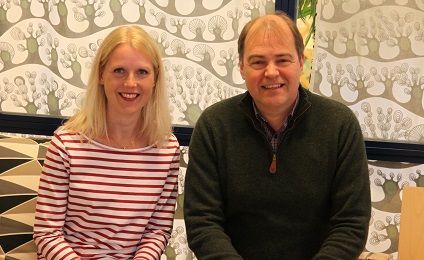
Lifestyle Impacts the Health of Future Generations
Although individual variations in lifestyle and genotype are important determinants of individual risk factors of several diseases, new research suggests that developmental plastic processes, partly through epigenetic tagging, contribute to the risk.
Although individual variations in lifestyle and genotype are important determinants of individual risk factors of several diseases, new research suggests that developmentalplastic processes, partly through epigenetic tagging, contribute to the risk. Epigenetic research investigates the occurrence of heritable changes in the gene expression without changes in the DNA sequence.
Recent research shows evidence on an association between ancestral food supply and longevity and premature cardiovascular and diabetic mortality of the descendants. Early paternal smoking has been suggested to be associated with an increased risk of developing overweight in sons but not in daughters.
It has long been known that maternal health is associated with the health of the fetus and the child but male-line transgenerational effects have been rather unknown. Recent research indicates that male ancestral exposure information is carried by the sperm and can cause a transgenerational effect on the health in offsprings.
Ancestors’ Lifestyle Impacts on Your Health
As new epigenetic knowledge suggests an association between lifestyle of ancestors and the health risks of descendants, new questions regarding health promotion and ethics emerge.
Does new epigenetic knowledge lead to blaming ancestors for present day diseases and health risks? Does new knowledge reduce or increase perceived responsibility of individuals, communities and societies? Is it possible to predict individual health status on ancestralinformation and target the content and method of health promotion more precisely on inherited health risks? When is the right time for health promotion; at adolescence, childhood, fetal period or before fertilization? What is the right level of health promotion; individual, family, community or society? When is the level of evidence of epigenetic knowledge strong enough to be implemented in clinical practice and public health promotion?
Writers
Mr. Ronald Robeers is specialized in epidemiologic research and lectures at the University College Artevelde in Belgium. Mr. Robeers visited TUAS in May, giving lectures to nursing students and working on research collaboration.
Mrs. Camilla Laaksonen is specialized in health promotion and leads the Health promotion research group at TUAS. This week we will especially concentrate on working on a very interesting research paper, discussing epigenetic factors associated with the risk of developing obesity and related ethics from the perspective of health promotion in the field.
